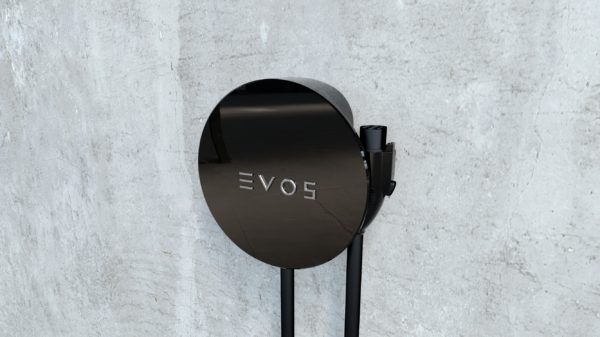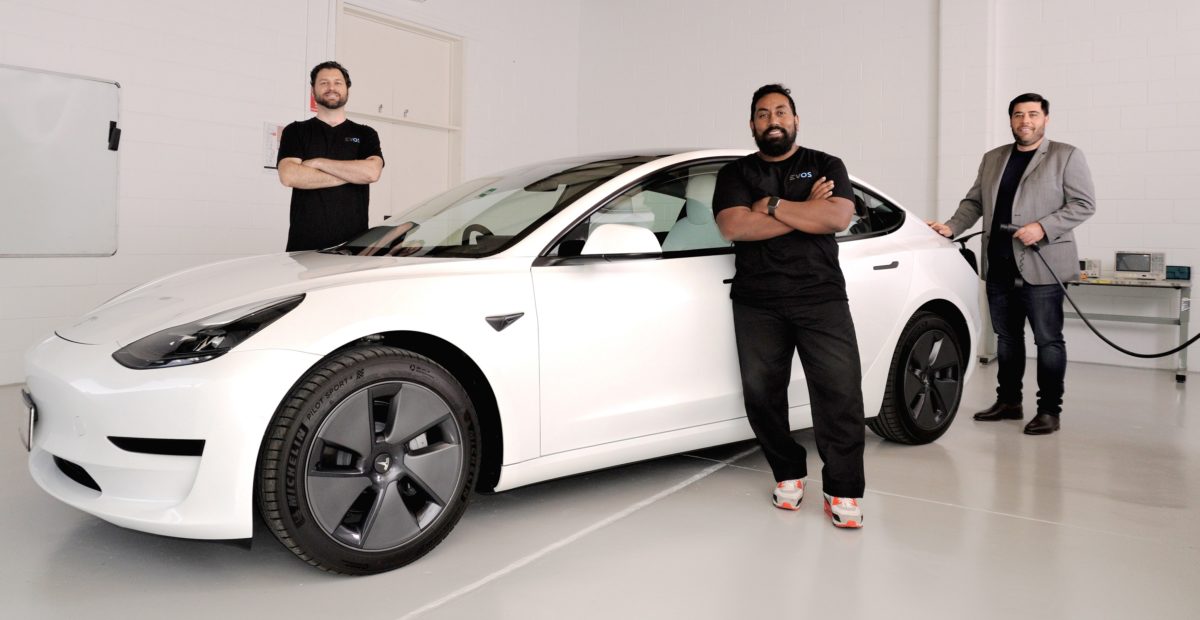Electric vehicle charging company EVOS will look to roll out its purpose-built home and fleet charger – capable of delivering up to 22 kW (AC) of capacity – and associated software platform after securing financial backing from Australian automotive industry veteran Autostrada and another, yet unnamed, investor.
EVOS chief executive Marcelo Salgado said the funding will enable the company to commercialise its chargers and energy management software platform in Australia and develop an export market, and expand its engineering department.
“We’re looking forward to using this investment to commercialise our products and deliver Australian businesses and the world an easy solution to their home and workplace charging needs,” he said.
Salgado, one of three former staffers from fellow Brisbane-based electric vehicle (EV) charging company Tritium behind EVOS, said the company will look to take advantage of Australia’s growing EV market with a special focus on fleet energy management.
The latest figures from the Australian Bureau of Statistics reveal registrations of EVs surged in 2021, almost doubling to 23,000, the second consecutive year where the number of EVs has almost doubled.
That increase has been driven in part by a flurry of government commitments with the New South Wales government recently allocating $33 million to electrify its fleet, while the Victorian government has pledged to inject 400 EVs into its fleet by 2023. The South Australian and Tasmanian governments are aiming to have their fleets fully electric by 2030.
Salgado said while the purchase of new EVs is on the up, the true benefit will be realised when those fleet vehicles are sold off and a re-sale market emerges.
“Once we have a true re-sale market, we’ll see the cost of an EV go down significantly for the everyday family, and with that we’ll need more purpose-built home chargers for those families to take advantage of one of the key benefits of owning an EV: charging at home,” he said.
“Government fleets are also set to see benefits but to truly realise the potential of an EV fleet, they need visibility into what their vehicles are doing, how they’re running and their energy consumption.”

Image; EVOS
The EVOS Fleet Home 22 charger and the dual-charge equivalent, the EVOS Twin, have been designed to meet the requirements of both individuals and fleets and for easy installation. The range includes a 7.6 kW single phase charger and a 22 kW three phase option.
EVOS chief technology officer Chris Crossman said alternating current charging lets businesses and fleets utilise down time at night or during work hours to charge cars in the most economical way.
“It’s designed to be simple to install and uninstall,” Crossman said.
“It can withstand outdoor weather conditions, is IP65 rated and updates to the underlying software are delivered over the air (OTA) via Wi-Fi. But more than that, it’s safe and its reliable for homes and fleets alike.”
The chargers, which will be manufactured using 100% renewable energy in Brisbane by Autostrada’s manufacturing arm Circuit Solutions, align with EVOS’ Smart Start software platform, creating an ecosystem designed to identify and manage the best time, speed and rate at which to charge vehicles.
EVOS chief experience and innovation officer Seshan Weeratunga said Smart Start has been designed with fleets in mind and manages the charging of EVs without the need for the use of radio frequency identification (RFID) tags, smartphone apps or fuel cards.
The platform allows EVOS and its customers to collect rich data from the driver, car, charger and grid, providing an overview of the energy used.
It can also automatically authenticate the vehicle, eliminating the need for third-party software, only allows authorised cars to utilise the asset, and allows roaming on EV charging networks.
“We’ve had significant experience in this space and one of the biggest challenges we saw for everyday drivers and fleets alike is not only a lack of charging infrastructure in Australia, but the fact that using chargers can be overly complex,” Weeratunga said.
“When a driver went to a charger, they might have to download a specific app simply to be invoiced. And from a fleet perspective the hassle and time it can take to manage multiple accounts for its fleet was a significant hindrance to EV rollouts.
“Our solution addresses those issues immediately. The additional benefit of our patent-pending Smart Start platform is that it can be used to manage the payments on other charging networks, it’s not tied solely to managing EVOS chargers.”
This content is protected by copyright and may not be reused. If you want to cooperate with us and would like to reuse some of our content, please contact: editors@pv-magazine.com.









By submitting this form you agree to pv magazine using your data for the purposes of publishing your comment.
Your personal data will only be disclosed or otherwise transmitted to third parties for the purposes of spam filtering or if this is necessary for technical maintenance of the website. Any other transfer to third parties will not take place unless this is justified on the basis of applicable data protection regulations or if pv magazine is legally obliged to do so.
You may revoke this consent at any time with effect for the future, in which case your personal data will be deleted immediately. Otherwise, your data will be deleted if pv magazine has processed your request or the purpose of data storage is fulfilled.
Further information on data privacy can be found in our Data Protection Policy.